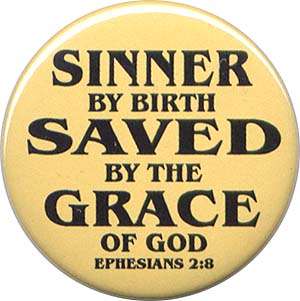“The moment you have a self at all, there is a possibility of putting yourself first - wanting to be the centre - wanting to be God, in fact. That was the sin of Satan: and that was the sin he taught the human race. Some people think the fall of man had something to do with sex, but that is a mistake...what Satan put into the heads of our ancestors was the idea that they 'could be like Gods' - could set up on their own as if they had created themselves - be their own masters - invent some sort of happiness for themselves outside God, apart from God. And out of that hopeless attempt has come...the long terrible story of man trying to find something other than God which will make him happy.” C S Lewis - Mere Christianity.
I caught a snippet on the radio the other night - some talk show about a new program on the Caribbean, and the contrast between the beauty, for example, of the barrier reef off Honduras, and the 'darkness' of the human society in the nearby towns, where violence is the norm. Sadly, the two realms are not mutually exclusive. "The reef is dying - almost half of it has already gone", notes the program-maker, adding, "and it's happened in our lifetime".
One of the vilest forms of infection is when corruption parasitically encroaches itself into a system which had previously been healthy and active. We can see it everywhere - from dying coral reefs to the lifeless centers of towns and villages; swathes of closed shops on the high street, unused youth and family centers, once noisy pubs now silent.
One of the most haunting passages I recall reading in my youth was from H G Wells' 'The War of the Worlds', when the narrator finds himself amidst the deathly silence of a capital city shrouded in the agony of post-war destruction. The desolation works upon him, creating such a void that he becomes taken by a single madness - to give himself to the invaders... far better to die than to live on in such darkness.
In theology too, such poison brings this malady. Modern approaches to both the Gospel and the faith encourage us to 're-evaluate' and 'adjust' our understanding of the work of Christ and the historical reasons for this, viewing sections of scripture as only holding 'myth', but at what cost are such changes made? If we loose the events and ramifications of the words, for example, of Genesis, then where does that leave us in regards to the pivotal relationship between Christ and Adam? Between Eden and the New Creation? Between the Fall and the human condition? Does such an approach truly enrich us or erode the faith once delivered to God's saints?
It is, of course, easy to become (to make a favorite quote) "all doomy gloomy", but thankfully, there is a flip-side. Just as poison can infect our impoverished world, the 'leaven' of the Gospel can bring liberty to the captives and allow us to see that a redemption is at hand which means a far richer future is assured, for both coral and culture. That is the manner of infection we all truly need.




